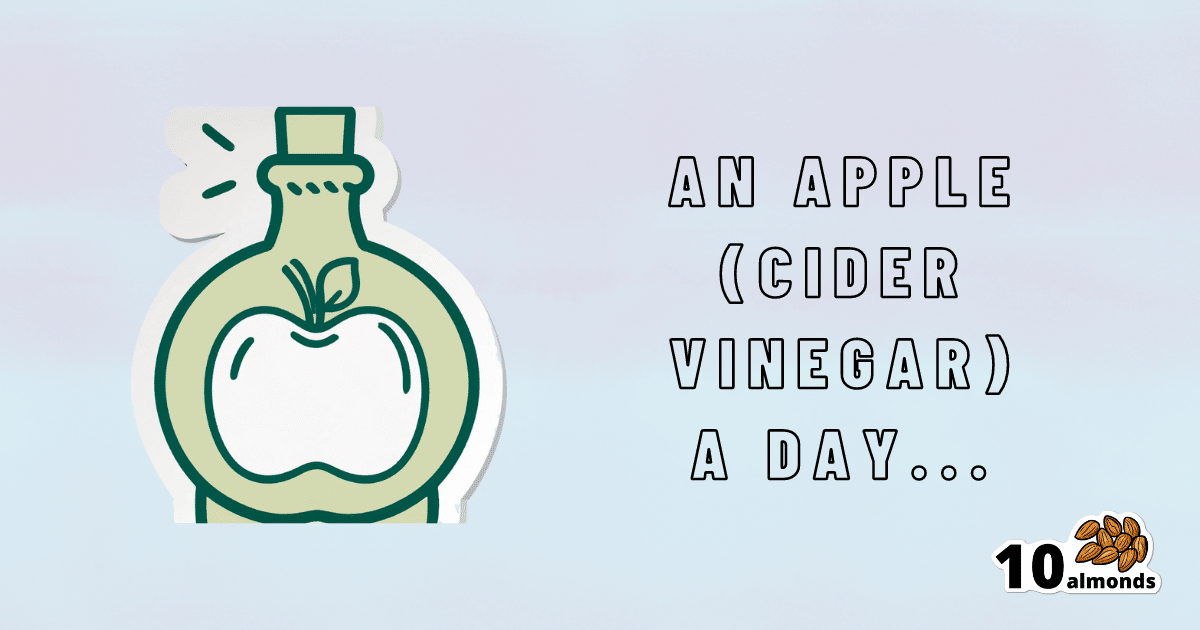An Apple (Cider Vinegar) A Day…
Drinking apple cider vinegar has been found to help manage blood sugar levels, aid in weight loss, and improve cholesterol levels. It is recommended to take 1-2 tbsp in a glass of water before meals.

An Apple (Cider Vinegar) A Day…
You’ve probably heard of people drinking apple cider vinegar for its health benefits. It’s not very intuitive, so today we’re going to see what the science has to say…
Apple cider vinegar for managing blood sugars
Whether diabetic, prediabetic, or not at all, blood sugar spikes aren’t good for us, so anything that evens that out is worth checking out. As for apple cider vinegar…
Diabetes Control: Is Vinegar a Promising Candidate to Help Achieve Targets?
…the answer found by this study was “yes”, but their study was small, and they concluded that more research would be worthwhile. So…
…was also a small study, with the same (positive) results.
But! We then found a much larger systematic review was conducted, examining 744 previously-published papers, adding in another 14 they found via those. After removing 47 duplicates, and removing another 15 for not having a clinical trial or not having an adequate control, they concluded:
❝In this systematic review and meta-analyses, the effect of vinegar consumption on postprandial glucose and insulin responses were evaluated through pooled analysis of glucose and insulin AUC in clinical trials. Vinegar consumption was associated with a statistically significant reduction in postprandial glucose and insulin responses in both healthy participants and participants with glucose disorder.❞
~ Sishehbor, Mansoori, & Shirani
Check it out:
Apple cider vinegar for weight loss?
Yep! It appears to be an appetite suppressant, probably moderating ghrelin and leptin levels.
But…
As a bonus, it also lowers triglycerides and total cholesterol, while raising HDL (good cholesterol), and that’s in addition to doubling the weight loss compared to control:
How much to take?
Most of these studies were done with 1–2 tbsp of apple cider vinegar in a glass of water, at mealtime.
Obviously, if you want to enjoy the appetite-suppressant effects, take it before the meal! If you forget and/or choose to take it after though, it’ll still help keep your blood sugars even and still give you the cholesterol-moderating benefits.
Where to get it?
Your local supermarket will surely have it. Or if you buy it online, you can even get it in capsule form!
Share This Post
Learn To Grow
Sign up for weekly gardening tips, product reviews and discounts.




